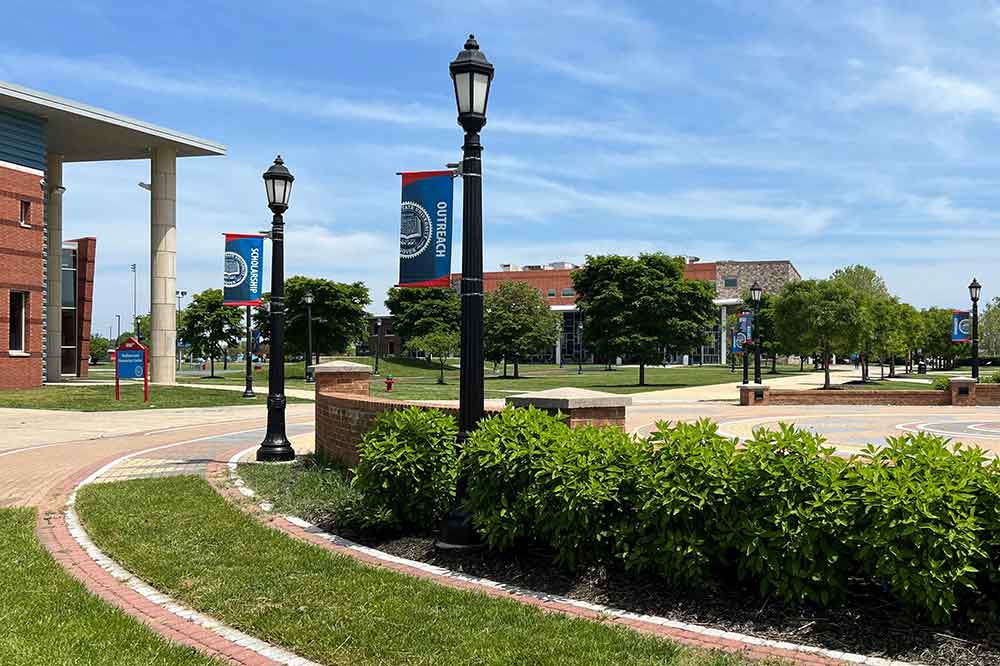
Message from President on SCOTUS affirmative action decision
A message to the University Community from President Tony Allen, Ph.D.:
Today, the United States Supreme Court issued a decision in two cases—Students for Fair Admission, Inc. (SFAI) v. President and Fellows of Harvard College and SFAI v. University of North Carolina—that disallowed institutions of higher education to formally consider race as a factor in admissions.
Since colleges and universities began admitting students of color during and after the Civil Rights Movement, they have had the latitude to consider a student’s race, alongside other factors, including academic merit, athletics, extracurriculars, and more, when choosing to offer a student admission.
In 6-2 and 6-3 decisions, respectively, the Supreme Court ended this practice for both private and public higher ed institutions.
Chief Justice Roberts wrote in the Court’s majority opinion, “Harvard and UNC admissions programs cannot be reconciled with the guarantees of the Equal Protection Clause,” referring to the U.S. Constitution’s 14th Amendment. [1]
In simpler terms, Roberts wrote that we ought to begin proceeding as though we are colorblind.
Except, in America, we’re not.
The opening lines of the dissent written by Justice Brown Jackson observes, “Gulf-sized race-based gaps exist with respect to the health, wealth, and well-being of American citizens. They were created in the distant past, but have indisputably been passed down to the present day through the generations. Every moment these gaps persist is a moment in which this great country falls short of actualizing one of its foundational principles—the ‘self-evident’ truth that all of us are created equal.” [2]
Justice Sotomayor’s dissent adds, “In so holding, the Court cements a superficial rule of colorblindness as a constitutional principle in an endemically segregated society where race has always mattered and continues to matter. The Court subverts the constitutional guarantee of equal protection by further entrenching racial inequality in education, the very foundation of our democratic government and pluralistic society.” [3]
I don’t need to explain to members of the Historically Black College and University (HBCU) community—or anyone who’s made even an informal study of the ‘separate but equal’ circumstances that predicated our founding—that race is most certainly a “plus factor” in admissions—admission to higher ed institutions, entrance to prisons, consideration in courts, treatment in medical settings, and on and on. Race is a “plus factor” because it’s been, for centuries, a “minus factor.” And our contemporary environment is a result of hundreds of years of uneven enactment of our founding principles.
One can argue about whether a policy like affirmative action would ever reach its natural end. This is not an unworthy question, but, today, the need remains. Inequality remains. The Supreme Court has made a decision which will most assuredly have what some describe as a chilling effect on college matriculation for people of color and which others decry as injurious to the very fabric of our broader society.
Not only will this decision affect higher ed admissions, but, according to the ACLU, employers will find it more challenging “to take steps to promote equity and diversify their workforce. Dozens of government programs that address past and current discrimination, advance racial equity, and seek to close the racial wealth gap, such as business incubator programs, could also be jeopardized.”[4]
In his dissent of the Regents of Southern California v. Bakke case (1978), Supreme Court Justice Thurgood Marshall wrote, “For it must be remembered that, during most of the past 200 years, the Constitution as interpreted by this Court did not prohibit the most ingenious and pervasive forms of discrimination against the Negro. Now, when a state acts to remedy the effects of that legacy of discrimination, I cannot believe that this same Constitution stands as a barrier.” [5]
He continued, “The position of the Negro today in America is the tragic but inevitable consequence of centuries of unequal treatment. Measured by any benchmark of comfort or achievement, meaningful equality remains a distant dream for the Negro.”
One need only glance at contemporary statistics to affirm what Justice Marshall called the “distant dream,” but I believe, as I hope you will, too, that our distinct role as an HBCU is to draw it ever closer. And we do.
More students of color, who might have chosen to apply to a predominantly white institution, will now apply to and attend an HBCU instead. HBCUs—and an ever-broadening array of HBCUs—will draw a greater number of talented students of color.
We will welcome them as we have always done. And we will need stalwart partners to help us in our work.
I echo a statement issued today by the Thurgood Marshall College Fund: “In light of this unprecedented decision, it is imperative, now more than ever, that America’s corporate leaders make an intentional effort to engage our HBCUs to ensure that their companies are finding and helping to cultivate the best and brightest students of color that our nation has to offer. Additionally, it is more critical now that Congress passes the IGNITE HBCU Excellence Act to provide HBCUs and their students with the critical infrastructure grants needed to improve institutional facilities, increase broadband access, provide access to cutting-edge technological resources, decrease environmental hazards, and establish or enhance centers for innovative research.”[6]
Together!
[1] https://www.supremecourt.gov/opinions/22pdf/20-1199_hgdj.pdf
[2] ibid
[3] ibid
[4] ACLU: What You Need To Know About Affirmative Action at the Supreme Court
[5] The New Yorker: Thurgood Marshall and the Need for Affirmative Action
[6] Thurgood Marshall College Fund June 29, 2023 press release

